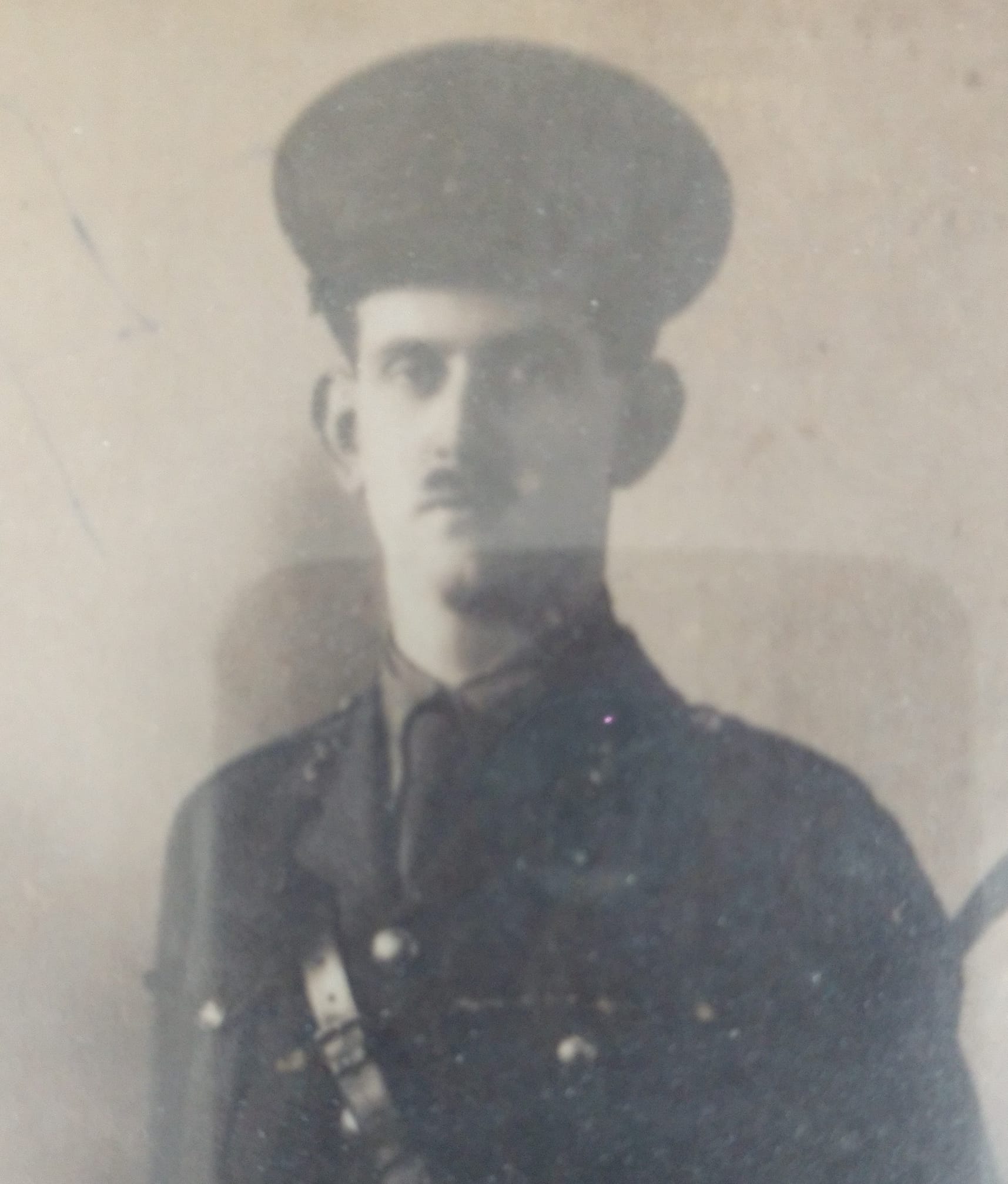
My grandfather, Sean MacCabe, was one of more than 200,000 Irishmen who volunteered to serve with the British Army during World War I. He served with the Royal Inniskilling Fusiliers and was stationed in France on December 20, 1917 when he wrote to his great aunt Elizabeth who lived on 116th Street in Manhattan. My family has the original letter complete with censor stamp. In addition to thanking her for the pencils and helmet she had sent him, he told her, “I have seen your Americans under shell fire and they are a credit to their country. I am sure their assistance will be a very valuable asset to our cause in the field.” He went on to say, “With this great time that has always been associated with peace and goodwill, it is painful to find Xmas celebrated for the fourth time under conditions which make the most barbarous happenings in history blush at our present conflagration. In the midst of it all, man seems so insignificant and powerless to deal with the situation he has created. It has gone beyond the control of Napoleons, Washingtons, or Wellingtons, only the merciful God whose birth we celebrate so soon can bring us the peace and goodwill we need so much.” He was 23 years old at the time and was fortunate enough to live to see the Armistice, come home to later marry and raise a family, unlike so many others who perished. However, the Ireland he returned to was a very changed country after the 1916 Easter Rising. Following the summary execution of the leaders of the Rising in Dublin, national outrage led ultimately to the War of Independence which began in 1919 and ended in a ceasefire in 1921 and the partitioning of Ireland. Accordingly, there was no triumphant welcome home for the Irish soldiers who fought for the British Army. Instead, some were met with hostility and even violence. Their service was virtually forgotten in the decades following Irish independence and it wasn’t until the 80th anniversary of the armistice in 1998, almost 50 years after my grandfather’s death, that the President or Ireland and the Queen of England dedicated a memorial at Messines, Belgium to the Irish who had fallen in WWI as part of the broader Irish Peace Process. Since that time, the Irishmen who served have received the recognition they deserve for their service and sacrifice. My grandfather’s words serve as a reminder on this Veteran’s Day and on the centenary of the armistice that soldiers, courageous and selfless as they can be in battle, just want peace. In memory of my grandfather, all those who served, and all who lost their lives in WWI before peace would come.






